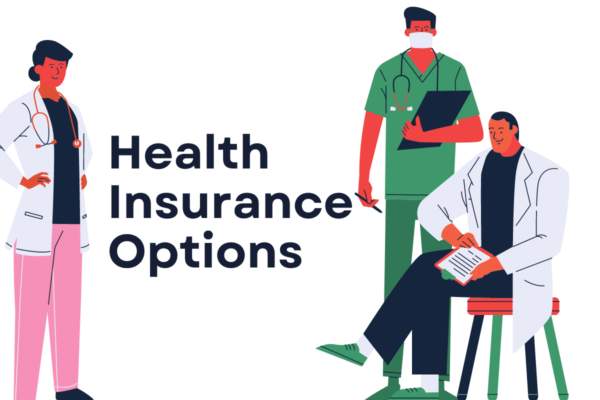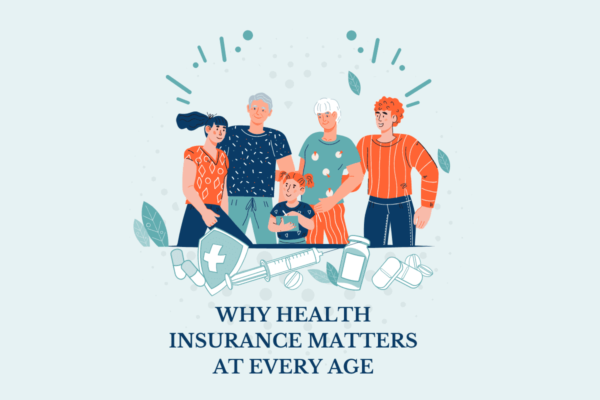Freelancing and Self-Employed? Your Guide to Health Insurance Options
The freedom and flexibility of freelancing are undeniably attractive. You call the shots, choose your projects, and set your own schedule. But one aspect of self-employment can be daunting: securing health insurance. Unlike traditional employees with employer-sponsored plans, freelancers are responsible for finding their own coverage.
This guide equips you with the knowledge to navigate the world of health insurance as a freelancer. We’ll explore various options, delve into cost considerations, and highlight resources to find the perfect fit for your needs.
Why Health Insurance Matters for Freelancers
While you might be young and healthy today, unexpected medical situations can arise. Health insurance safeguards your finances in case of illness or injury. It covers a range of medical costs, from preventive care to hospitalization. Here’s why freelancers shouldn’t skip health insurance:
- Peace of mind: Knowing you have coverage reduces stress and allows you to focus on your work and well-being.
- Financial protection: Medical bills can be exorbitant. Insurance helps manage these costs, preventing them from derailing your finances.
- Access to care: Insurance often grants access to a network of healthcare providers, ensuring you receive quality care when needed.
Exploring Your Health Insurance Options
As a freelancer, you have a broader range of health insurance options compared to traditional employees. Here’s a breakdown of some popular choices:
- Affordable Care Act (ACA) Marketplace: The ACA, often referred to as “Obamacare,” provides a platform to shop for subsidized health insurance plans. Depending on your income, you might qualify for premium tax credits to make coverage more affordable.
- Short-Term Health Insurance: These plans are meant to bridge gaps in coverage and typically last for a limited period (e.g., three months). They often have lower premiums but might not offer comprehensive coverage for pre-existing conditions.
- COBRA Continuation Coverage: If you lose health insurance due to job loss, COBRA allows you to continue your former employer’s group health plan. However, COBRA can be expensive as you’ll pay the entire premium (employer and employee portion).
- Freelancer Associations/Unions: Some freelancer associations and unions offer group health insurance plans to their members at potentially lower rates due to group discounts.
- High-Deductible Health Plan (HDHP) with Health Savings Account (HSA): HDHPs have lower premiums but come with higher deductibles (the amount you pay out-of-pocket before insurance kicks in). HSAs allow you to save pre-tax dollars to cover qualified medical expenses not covered by the HDHP.
- Individual Health Insurance: You can buy individual health insurance plans directly from insurance companies. These plans vary in coverage and cost.
Choosing the Right Plan: Key Considerations
With an array of options, selecting the right health insurance plan requires careful consideration. Here are some key factors to keep in mind:
- Budget: Freelancing income can be variable, so factor in your monthly income and budget realistically when considering premiums.
- Health Needs: Evaluate your current health status and anticipate potential future needs. If you have pre-existing conditions, ensure the plan offers adequate coverage.
- Coverage Details: Scrutinize the plan’s details, including deductibles, copays, coinsurance (percentage you share with the insurer), and the provider network.
Additional Tips for Freelancers
- Compare Quotes: Before making a decision, get quotes from multiple insurance companies and the ACA marketplace to find the most competitive plan for your needs.
- Consider Tax Advantages: Freelancers can typically deduct the entire cost of their health insurance premiums from their taxable income. Consult a tax professional for guidance.
- Stay Healthy and Preventive Care: Regularly visiting your doctor for preventive care can save money in the long run by identifying and addressing potential health concerns early on.
Conclusion
Freelancing offers immense potential for professional fulfillment and financial freedom. By prioritizing health insurance, you safeguard your well-being and ensure financial security in the face of unexpected medical situations.






